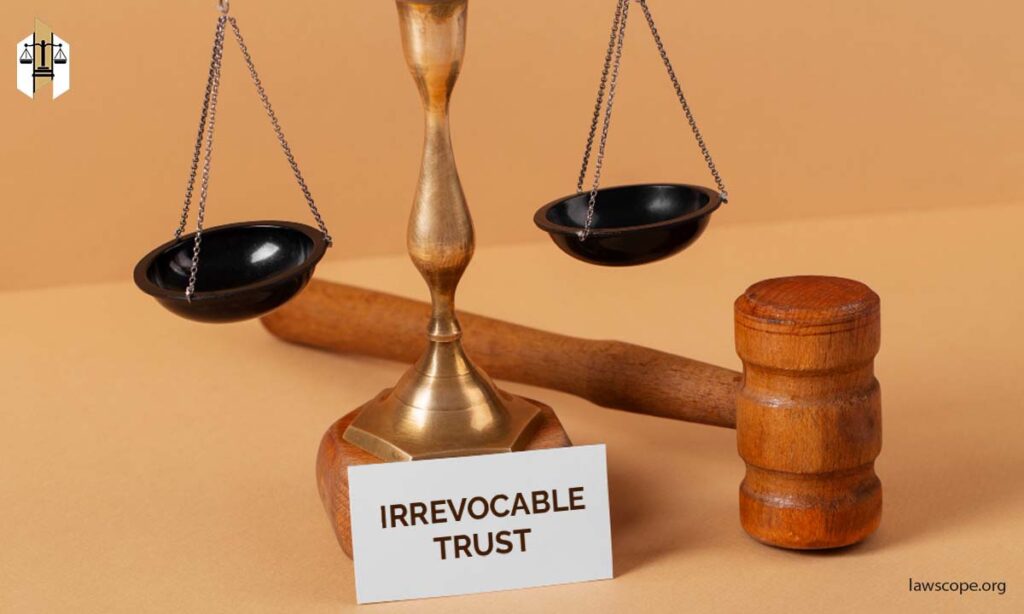
According to a survey by WealthCounsel and Trusts & Estates magazine, the number of irrevocable trusts being used in 2020 was at 63% irrespective of the dangers of irrevocable trust.
The irrevocable market was valued at US$ 3.72 Billion in 2020 and is expected to grow at a CAGR of 7.53% from 2021 to 2028 to reach US$ 6.77 Billion by 2028.
Thirty-four percent of the ultra-high-net-worth have established one, and 16% are planning to do the same in the coming five years. These statistics highlight the increasing prominence of irrevocable trusts.
In this article, some of the risks associated with nonrevisable trust, what it actually means, and who could benefit from these kinds of trusts will be assessed.
What Is A Trust?
This is the entity in law that allows one to give the assignment of their assets or properties to a trustee who holds a fiduciary capacity to act in the best interest of the beneficiary or the one entitled in the trust.
A living trust may be revocable or irrevocable, and you can name the beneficiaries.
A trustee ensures that your wishes are carried out. And so, while not everyone may have occasion to need a trust, it could certainly ease the transfer of substantial assets to family members or charitable giving plans.
What Is An Irrevocable Trust?
The irrevocable trust is the one that cannot be revoked or changed by its nature after creation.
It is generally used in the field of estate planning to help reduce estate taxes and thereafter to help protect the assets from creditors besides making the distribution of the assets easier per the individual’s wish.
Major irrevocable trust variations are two: living trusts and testamentary trusts.
Living trusts are those created within a settler’s lifetime and which he or she funds; an example of this is the permanent life insurance trust, the SLAT, the QPRT, or the GRAT.
On the contrary, testamentary trusts should be irrevocable, funded from the estate of the deceased according to his or her will. This can only be changed or revoked through a change to the will done by the creator in his or her lifetime.
An Irrevocable Trust: Features You Must Focus On
How do you know if a trust is a revocable one or an irrevocable one?
Well, the following are some of the striking features of an irrevocable trust that helps you to identify the trust type and reevaluate the dangers of irrevocable trust if it is one.
(i) Ownership Transfer: Where assets are transferred into an irrevocable trust, the grantor has thereby given up any ownership over such assets. The assets are excluded from being part of the grantor’s estate for tax reasons.
(ii) Trustee’s Management: This means that the trustee of an irrevocable trust still administers the assets within that trust and issues those assets according to the terms of the trust.
At the time of the creation of the trust, though, the trustee is selected by a grantor, but once the trust is created, the trustee then has possession of the assets.
(iii) Benefits In Taxation: Since the assets in an irrevocable trust are removed from the estate of the grantor, the heirs may pay less tax when the grantor dies.
This tends to reduce the estate tax liability of the grantor and ensures that the heirs get more of the assets.
(iv) Protection Of The Creditor: Generally, assets put into an irrevocable trust are insulated from creditors. This could be especially helpful to persons who are at high risk of being exposed to lawsuits, like those who just want to protect their assets from losing them possibly in one.
(v) No Modifications: An irrevocable trust is such a trust that cannot be changed after its creation. The grantor is unable to come back in subsequent years and make changes if, for example, his situation or his mind about the trust has changed.
Dangers of Irrevocable Trust: Top Risks To Consider
There are several benefits of forming an irrevocable trust. That said, at the same time, there exist some risks or dangers of irrevocable trust and certain disadvantages one should take into consideration before one gets into it.
1. Complexity
Some of the irrevocable trusts could also be complex and always call for meticulous planning and drafting to make sure that they are put in such a manner as shall protect the goals and objectives of the grantor.
The trust may also require ongoing management and administration, which can become not only time-consuming but also costly.
2. Control Loss
The person who made the transfer of assets will no longer hold direct authority and control over the assets once they’re in the irrevocable trust.
It will define how to distribute the assets and the terms of disbursement and fashion. The terms and conditions set by the grantor cannot be changed or accessed by the grantor without the permission of the trustee.
3. Costs
Setting up and managing an irrevocable trust comes with costs incurred in the aspects of trust administration piling up across the period of existence.
The expenses incurred in setting up and managing the trust would be an overbearing influence on the expected advantages that will accrue from the trust.
4. Inflexibility
Once set, it is highly likely that the terms and conditions of the irrevocable trust setting or even winding the trust down may be very hard to make.
This creates inflexibility, which may work to the detriment of the grantor if his or her goals or objectives change due to a change in circumstances.
5. Tax Implications
Irrevocable trusts, though they may very well give tax benefits, are in the process created with possible long-arm tax implications and hence should be looked at with a word of caution.
For example, where the trust generates income, this income might become subject to income tax.
This is in light of value increase: the assets in it are subject to estate taxes upon the death of the grantor.
Irrevocable Trust: The Exceptions
That said, while the rules of an irrevocable trust are that they are irrevocable, there are times when a third party can legitimately overturn your trust which is technically turning down the dangers of irrevocable trust.
An irrevocable trust may be successfully revoked by a court of law if created and funds and assets transferred into it at the time when you have an ongoing lawsuit against you or just the time when you are anticipating one.
Essentially, it is untenable to create an irrevocable trust in advance to keep your assets from a certain person.
There are, however, some states in which the trustee and the beneficiary do have the power to make some amendments to the irrevocable trust.
For example, in the event that the beneficiary was to be suffering from a terminal disease, the trustee can release the assets.
Key Takeaways
Irrevocable trust is a kind of trust that, being established, cannot be terminated.
This kind of trust is usually used as a tool in the estate planning process for minimizing estate tax liabilities and, more generally, for protecting given assets from future creditors.
There are two variants of irrevocable trusts which are living trusts and testamentary trusts. Irrevocable trusts have features such as ownership transfer, trustee management, benefits in taxation, protection of creditors, and no modifications.
However, there are also potential dangers of irrevocable trust which means they also have risks such as complexity, control loss, costs, inflexibility, and potential long-arm tax implications.
Exceptions to this include the possibility of a third party overturning the trust during a lawsuit or anticipating one.
In some states, the trustee and beneficiary can make amendments to the trust, such as releasing assets in the event of a life-threatening illness.
You May Like Also:


